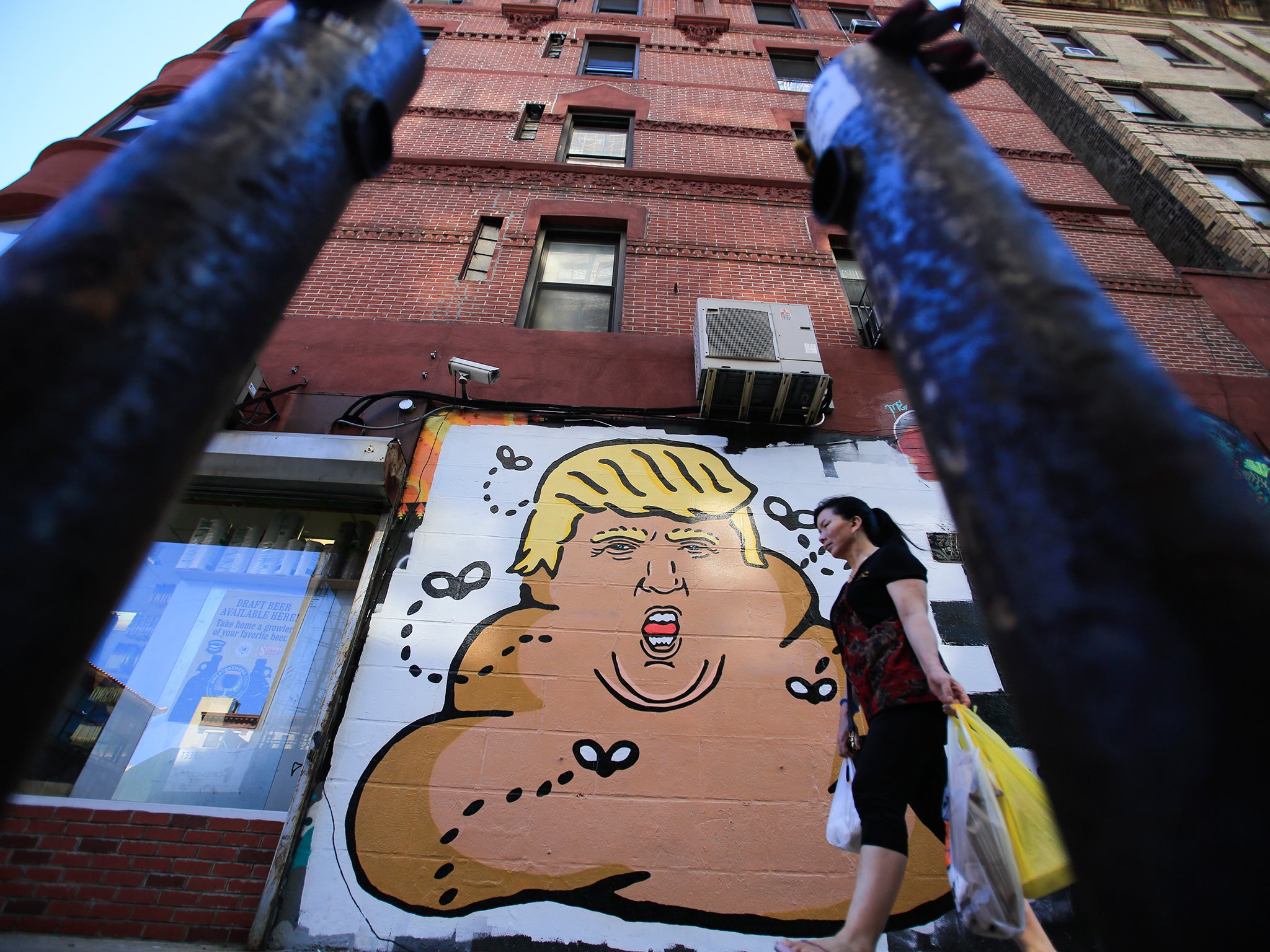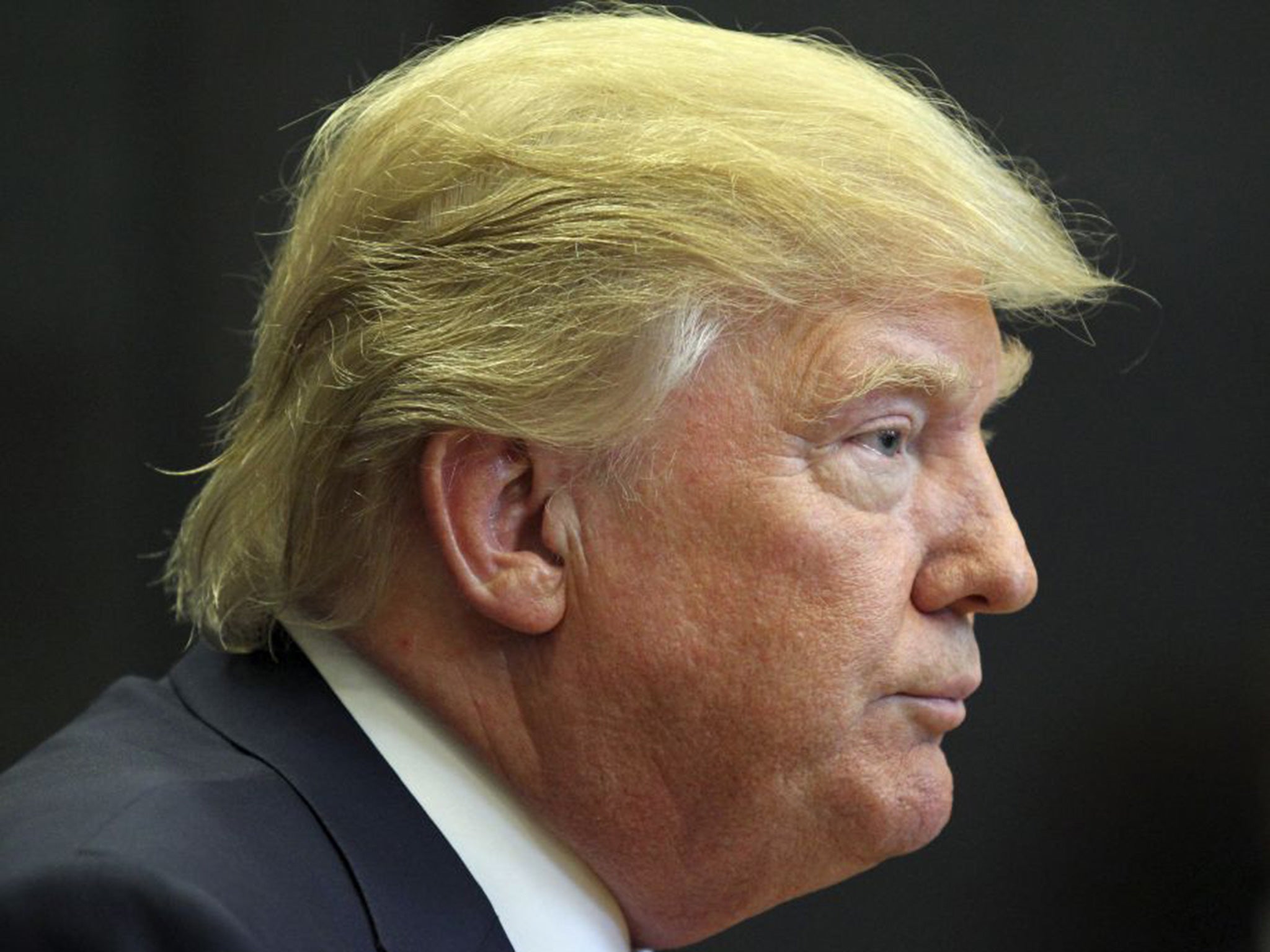Donald Trump is breaking all the rules, and the voters love him for it – but he could end up destroying his party
Out of America: America has a hankering for political outsiders, who thrive when times seem bad


Seven weeks ago, this space was devoted to Donald Trump, just as he was starting to make a mark on Campaign 2016. Don’t worry, I argued, this was a summer silly season story; come September’s return to reality, our strutting impresario would succumb to the laws of political gravity – but that, even so, he was a nightmare for the Republican establishment. I was dead wrong on the first point, and dead right on the second.
September is just two days off, yet Trump’s lead over his rivals for the Republican nomination continues to grow. The more he ignores the accepted rules of politics, the more the voters love him. He brags, berates and bullies. He shatters all records in the use of the vertical pronoun. He trashes a beloved national war hero, picks a feud with the star female anchor of Fox News, his party’s in-house propaganda arm, and calls his opponents schoolyard names. Illegal immigrants from Mexico and beyond he brands rapists and murderers, alienating vital Hispanic voters.
Tedious things such as facts don’t matter. No worthy policy papers or seasoned, big-name advisers adorn Trump’s campaign. Of his party’s establishment, he’s openly dismissive. Politics à la Trump is an off-the-cuff reality show, one he’s winning hands down. In the latest Quinnipiac University poll, he garners 28 per cent, more than double his closest rival. In other words, he’s obliterating the rest of a 16-man field, one of the strongest in memory, stuffed with bright young senators and eminent past and present state governors. But Trump for now has reduced them to irrelevance. What on earth is going on?

At one level the answer is simple. America has always had a hankering for political outsiders, and outsiders especially thrive when times seem bad. Remember the virtually unknown Jimmy Carter in 1976? Or the upstart Bill Clinton in 1992, the same year the Texas businessman/billionaire Ross Perot – in some respects a prototype Trump – at one point led all presidential polls and, despite a string of self-inflicted wounds, won 20 per cent of the general election vote? These days, barely a third of the population thinks America is “on the right track”, and frustration at the failure of the country’s politicians to do anything about it merely grows. Perfect conditions, in other words, for a Trump.
Nor is he so different from what’s happening elsewhere in the developed world. Trump rants against immigration, just like the nativist, nationalist parties in France, Britain and Germany – Front National, Ukip and so on – who say an influx of foreigners is driving their countries to the dogs. Like them, he is a product of disgust with entrenched elites, of a belief that the old system no longer works.
Which brings me to a second reason. Republicans have brought Trump upon themselves. In recent elections, the right-wing Tea Party has surged, its new representatives in Washington promising to bring radical change. But they haven’t. They’ve merely generated gridlock and government shutdown, bringing Congress into even greater disrepute. The American system of government brims with checks and balances. The Tea Party has learnt that the hard way, and so would a President Trump within days of taking office.
Republican voters simply grow more furious, even at the young guns they voted into Congress, and look for new heroes unsullied by the place, people who sound as if they have the answers. The Quinnipiac poll is remarkable. Trump’s nearest rival is the neurosurgeon Ben Carson, on 12 per cent.
Throw in the former Hewlett-Packard CEO Carly Fiorina and her 5 per cent, and almost half of all Republican voters support candidates never elected to any political office. Meanwhile the establishment’s Jeb Bush, son and brother of presidents and early favourite for the nomination, has sunk to just 7 per cent (in fairness, it should be said that Bush’s efforts thus far, to use a favourite Trump adjective, have indeed been “pathetic”).
And Trump knows exactly what he is doing, as evidenced as long ago as 1987 in his book The Art of the Deal. “The final key to the way I promote is bravado. I play to people’s fantasies,” he wrote. “People may not always think big themselves, but they can still get very excited by those who do. That’s why a little hyperbole never hurts.” Bravado, hyperbole – weapons aimed at the heart, not the head: everywhere tools of strongmen, and self-promoters on ego trips.
Of course, there’s also a specifically US ingredient in our story. Politics and show business have been on a merger path here for years. Politicians have turned into television stars; now a TV star is becoming a political entertainer, and one who is ratings gold. A self-reinforcing cycle is at work. The more the cable networks feature Trump, the more people want to watch, if only to see what all the fuss is about. When was the last time they dropped planned programming to air a candidate’s campaign meeting live, 14 months before election day, as has happened a couple of times with Trump of late?
READ MORE: Hulk Hogan wants to be Trump's running mate
Trump claims Mexican immigrants bring in infectious diseases
Donald Trump vs Jeb Bush
In the process, he’s up-ended much standard wisdom about money in politics, and the dark power of super-PACs and unlimited campaign contributions. Yes, Trump is mega-rich, but part of his appeal is precisely that he is not beholden to sinister billionaire donors buying future political favours. He’s reminded us, too, that while money can keep a hopeless candidacy alive beyond the grave, it can’t of itself turn a loser into a winner. Do well, and you’ll get free coverage worth far more than the most skilfully crafted of TV ads. Those are one thing Trump doesn’t have to waste his billions on.
Where does the carnival end? Naively perhaps, I still believe the novelty will wear off, that Trump will self-destruct, and that one of his rivals, a more conventional politician who can nonetheless portray himself as an outsider will prevail. But if Trump wins, he will destroy the established Republican party in the process. If that isn’t a GOP nightmare, what is?

Join our commenting forum
Join thought-provoking conversations, follow other Independent readers and see their replies